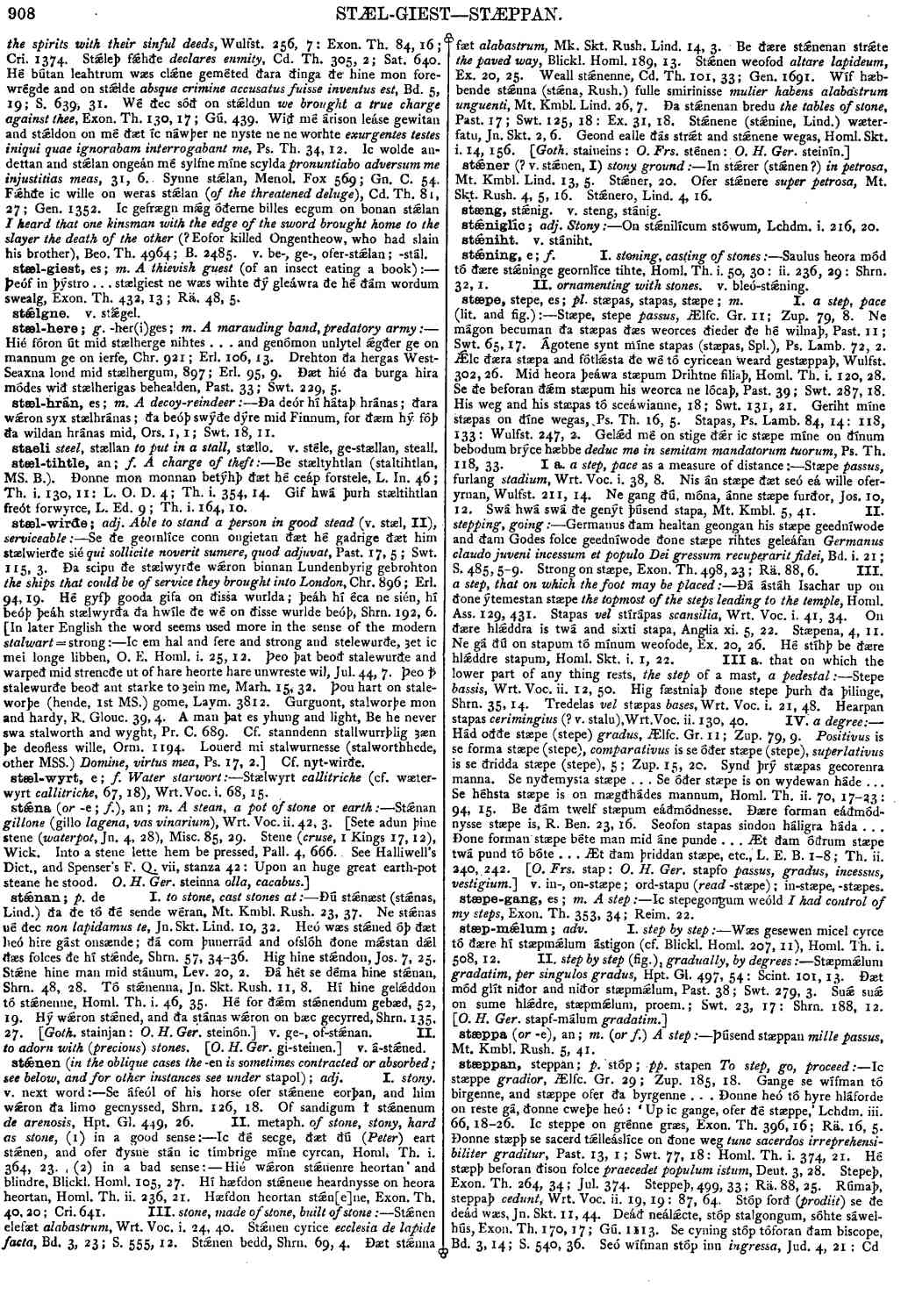stæl-wirðe
- adjective
-
Se ðe geornlíce conn ongietan ðæt hé gadrige ðæt him stælwierðe sié
qui sollicite noverit sumere, quod adjuvat,
- Past. 17, 5; Swt. 115, 3.
-
Ða scipu ðe stælwyrðe wǽron binnan Lundenbyrig gebrohton
the ships that could be of service they brought into London,
- Chr. 896; Erl. 94, 19.
-
Hé gyfþ gooda gifa on ðissa wurlda; þeáh hí éca ne sién, hí beóþ þeáh stælwyrða ða hwíle ðe wé on ðisse wurlde beóþ, Shrn. 192, 6. [In later English the word seems used more in the sense of the modern
stalwart
= strong :-- Ic em hal and fere and strong and stelewurðe, ȝet ic mei longe libben,- O. E. Homl. i. 25, 12.
-
Þeo Þat beoð stalewurðe and warpeð mid strencðe ut of hare heorte hare unwreste wil,
- Jul. 44, 7.
-
Þeo ꝥ stalewurðe beoð ant starke to ȝein me,
- Marh. 15, 32.
-
Þou hart on staleworþe (hende, 1st MS.) gome,
- Laym. 3812.
-
Gurguont, stalworþe mon and hardy,
- R. Glouc. 39, 4.
-
A man þat es yhung and light, Be he never swa stalworth and wyght,
- Pr. C. 689.
-
Cf. stanndenn stallwurrþlig ȝæn þe deofless wille,
- Orm. 1194.
-
Louerd mi stalwurnesse (stalworthhede, other MSS.)
Domine, virtus mea,
- Ps. 17, 2.
Bosworth, Joseph. “stæl-wirðe.” In An Anglo-Saxon Dictionary Online, edited by Thomas Northcote Toller, Christ Sean, and Ondřej Tichy. Prague: Faculty of Arts, Charles University, 2014. https://bosworthtoller.com/28652.
Checked: 0